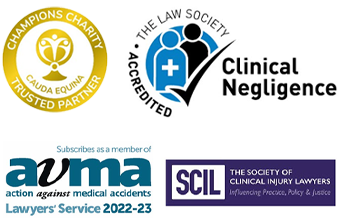A seven year old girl has died from a burst appendix after a series of NHS blunders.
Malaika Adam, from Essex, fell ill in May last year with pelvic appendicitis, where the appendix sits lower in the abdomen than normal.
An inquest has heard that she was seen by an out-of-hours GP on 14 May who wrongly diagnosed gastroenteritis, a common stomach bug.
Her condition quickly deteriorated and the following day her mother, Donna Howe, called NHS 111 – which in south Essex is provided by Integrated Care 24 or ‘IC24’.
The call was received at 6.43pm and Malaika’s mother was told a clinician would call her back, but this did not happen for over an hour.
Further delays
An ambulance was then arranged, but only a “Green Two” priority was given, when it should have been an urgent “Red Two” priority.
Consequently an ambulance did not arrive until 8.47pm, and the ambulance crew had been given so little information by IC24 that they did not realise the patient was a child. This led to further delays while paediatric equipment was found.
By this stage Malaika was in a critical condition and had no radial pulse or blood pressure. Paramedics managed to stabilise her enough to drive to Basildon Hospital.
There were more delays at hospital when the handover between paramedics and hospital staff took 30 minutes – twice the recommended 15 minute target.
Sadly Malaika died later that evening from peritonitis due to acute appendicitis with perforation.
“Failings in the service”
Coroner Caroline Beasley-Murray highlighted the errors made, saying: “There were failings in the service provided by both IC24 and the East of England Ambulance Service. It is possible that care might have made a difference to the outcome.”
The news comes after a leading paediatrician said NHS 111 may not be “safe and effective” when diagnosing children.
Professor Neena Modi recently questioned whether it was appropriate to assess children over the phone, because diagnosing a serious illness “gets more and more difficult the younger the child.”
She also raised concerns that NHS 111 call-handlers are not medically trained, saying that “even a clinician trying to make an assessment over the telephone would find it much more difficult in a smaller child than in an older child.”
Expert legal advice
To talk to a solicitor about substandard medical care received either by yourself or your loved one, please contact us at Glynns Solicitors.
Share Article With:

|

|

|

|

|

|



